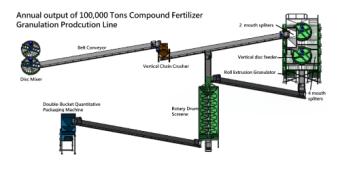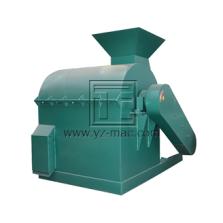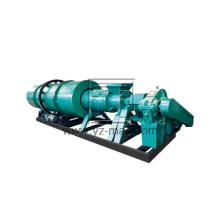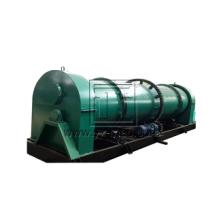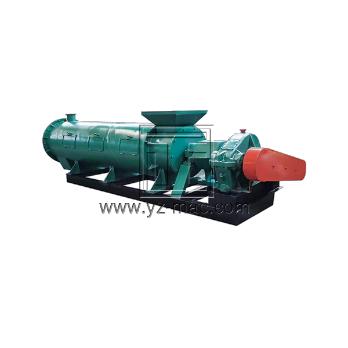Organic Fertilizer Production Technology
Organic fertilizer production technology typically involves the following steps:
1.Raw material collection: Collecting organic materials such as animal manure, crop residues, and organic waste materials.
2.Pre-treatment: Pre-treatment includes removing impurities, grinding and mixing to obtain uniform particle size and moisture content.
3.Fermentation: Fermenting the pre-treated materials in an organic fertilizer composting turner to allow microorganisms to decompose and convert the organic matter into a stable form.
4.Crushing: Crushing the fermented materials to obtain uniform particle size and make it easier for granulation.
5.Mixing: Mixing the crushed materials with other additives such as microbial agents and trace elements to improve the nutrient content of the final product.
6.Granulation: Granulating the mixed materials using an organic fertilizer granulator to obtain granules of uniform size and shape.
7.Drying: Drying the granulated materials to reduce moisture content and increase the shelf life of the final product.
8.Cooling: Cooling the dried materials to ambient temperature to make it easier for storage and packaging.
9.Screening: Screening the cooled materials to remove fines and ensure the final product is of high quality.
10.Packaging: Packaging the screened and cooled organic fertilizer into bags of desired weights and sizes.
Some of the advanced organic fertilizer production technologies include:
1.Bio-organic fertilizer production technology: This technology involves the use of microbial agents such as bacteria, fungi, and actinomycetes to convert organic matter into a stable and nutrient-rich form.
2.Complete set of equipment for organic fertilizer production: This technology involves using a complete set of equipment such as fermentation turner, crusher, mixer, granulator, dryer, cooler, screener, and packing machine for efficient and automated organic fertilizer production.
3.Organic fertilizer production technology with harmless treatment of livestock and poultry manure: This technology involves using advanced technologies such as high-temperature composting and anaerobic digestion to treat and sterilize livestock and poultry manure to produce organic fertilizers that are free from pathogens and harmful substances.
The choice of organic fertilizer production technology depends on various factors such as the availability of raw materials, production capacity, and investment budget.



